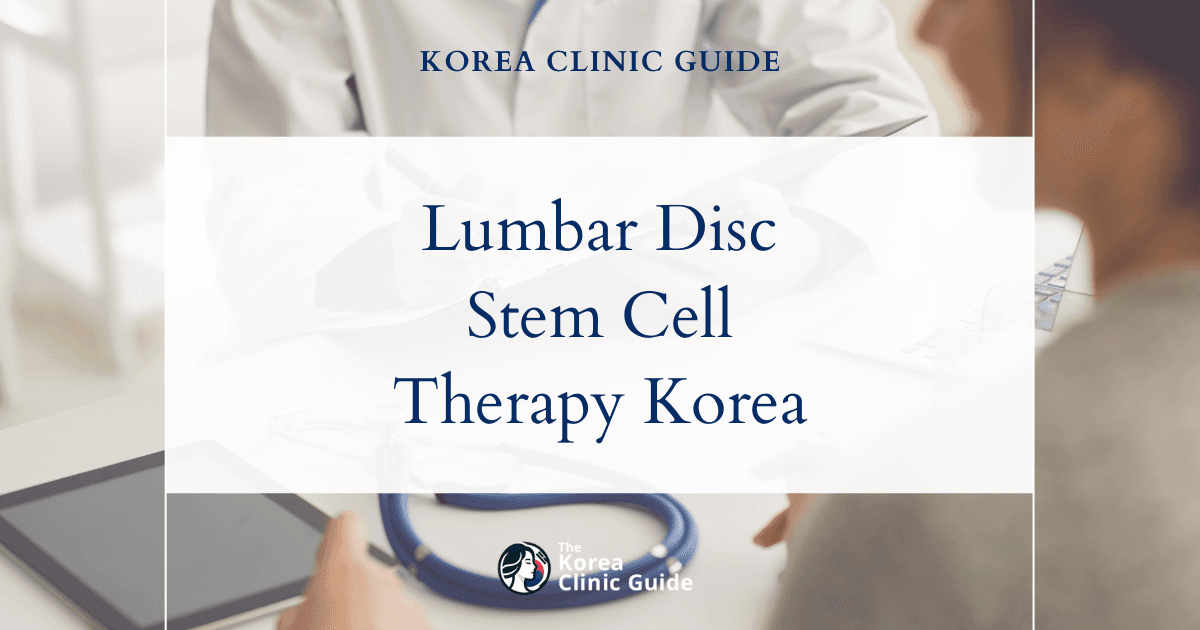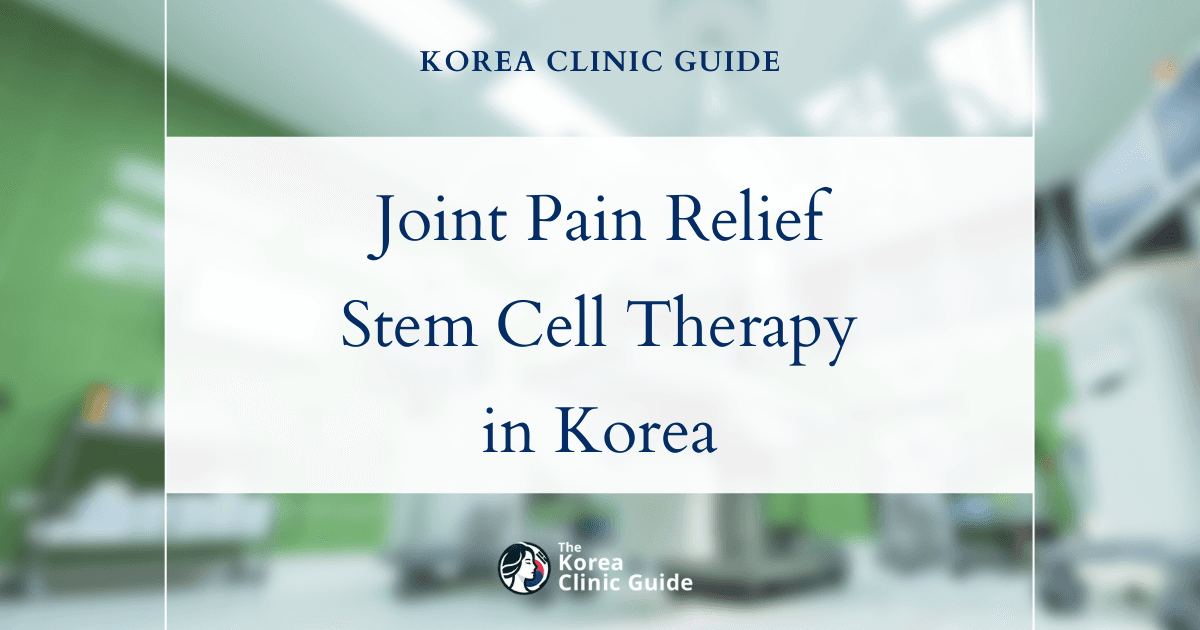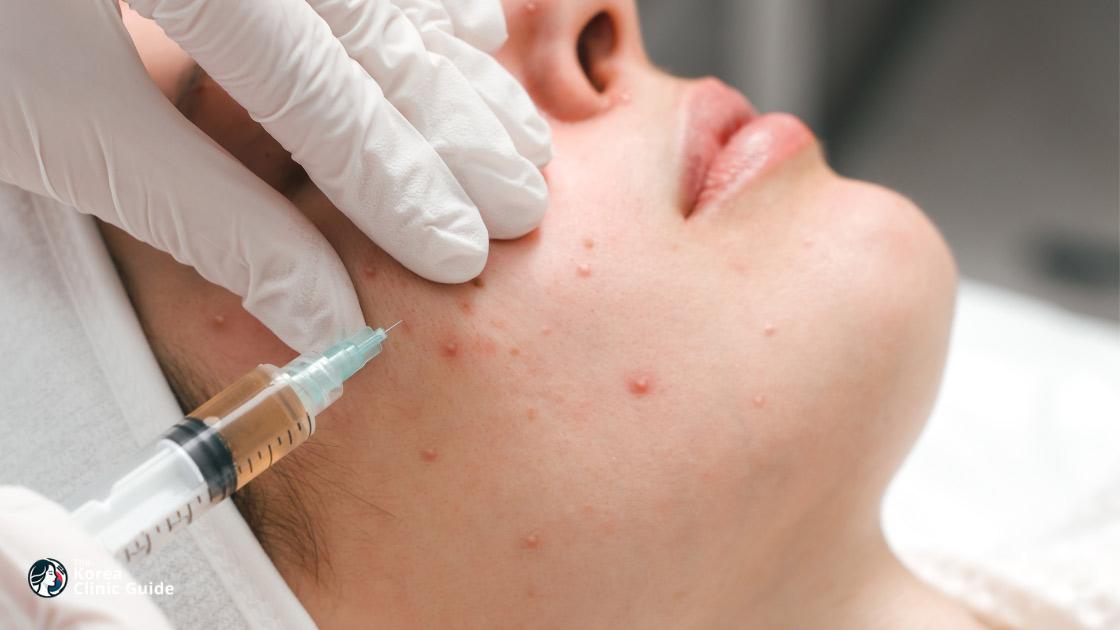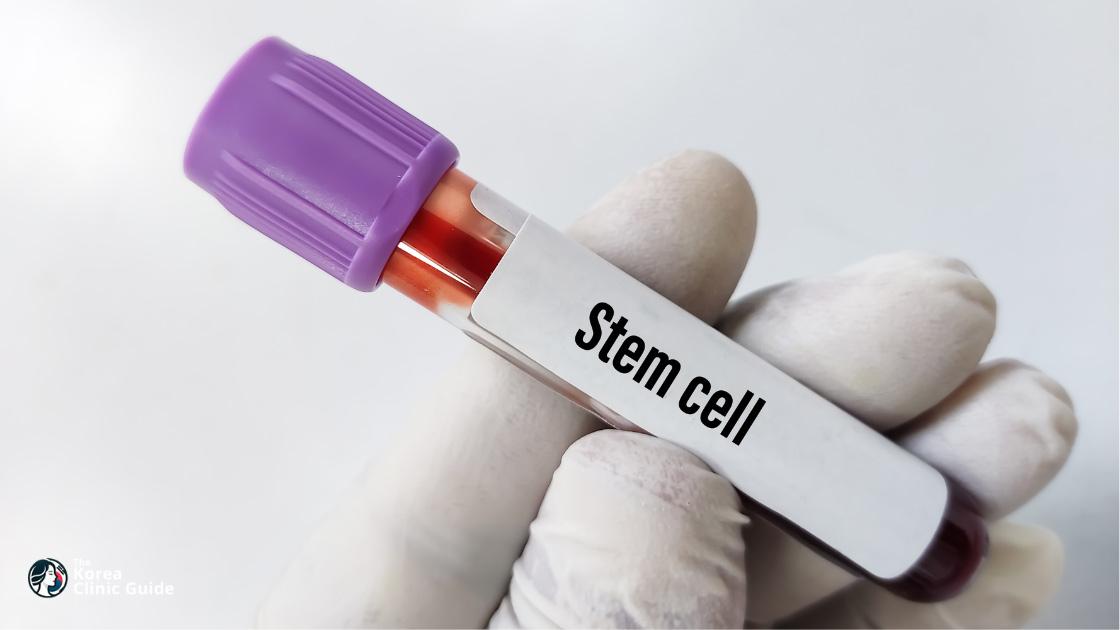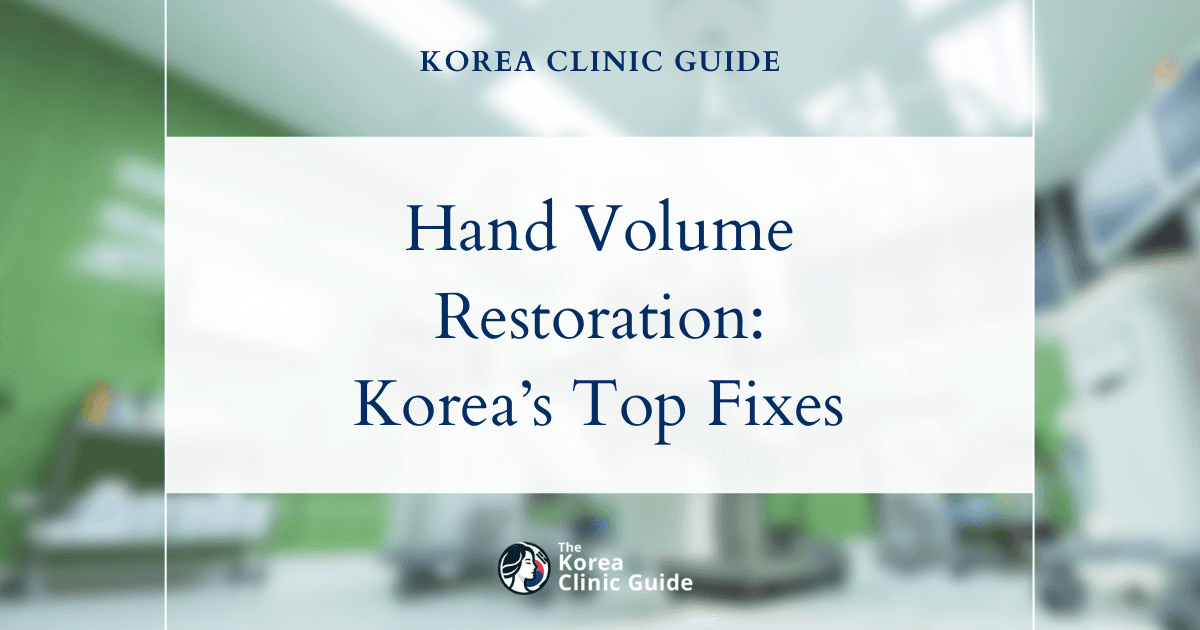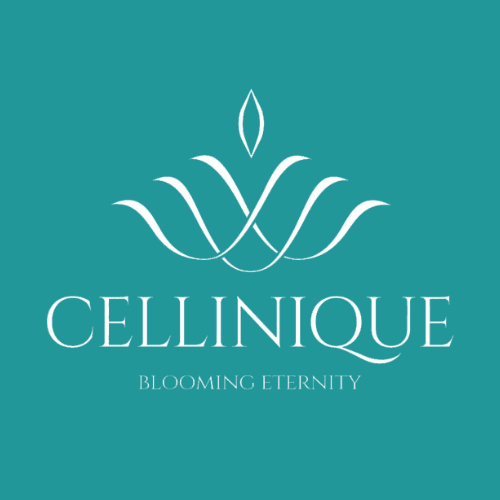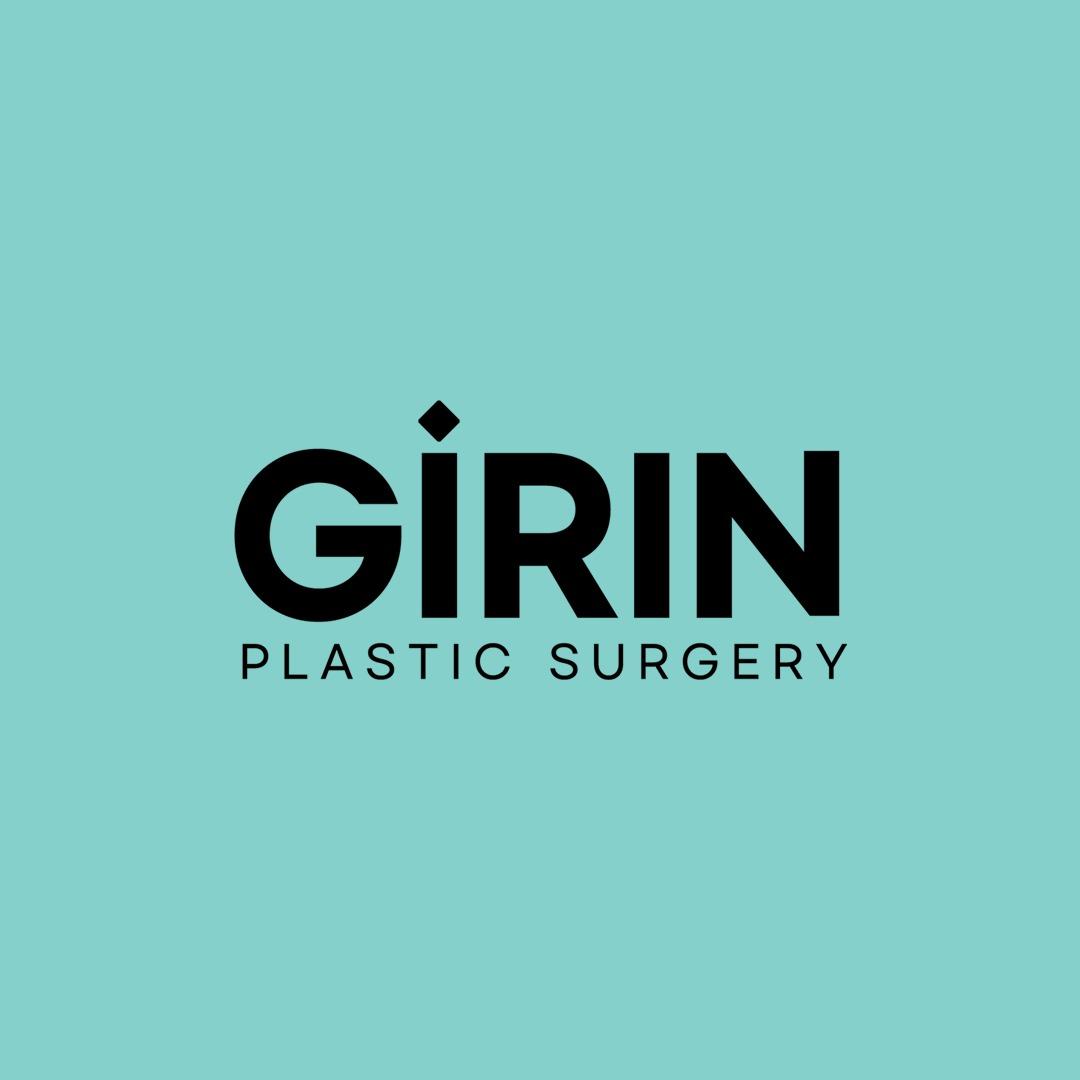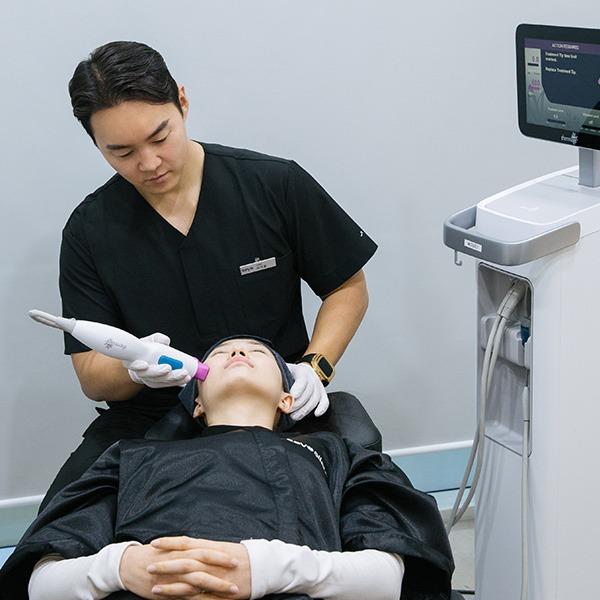Medical Tourism Blog
Autologous Stem Cell Therapy in Korea | Best Clinics, Costs, Procedure Types & More

Table of contents
- Autologous Stem Cell Therapy Overview
- Best Clinics in Korea for Autologous Stem Cell Therapy
- Benefits of Autologous Stem Cell Therapy in Korea
- Cost of Autologous Stem Cell Therapy in Korea
- Alternatives to Autologous Stem Cell Therapy
- Conclusion
Considering treatment in Korea? Everything you need to know e.g. — how to avoid scams, visas, interpreters, recovery tips — in our Medical Tourism Master Guide. Plan with confidence in minutes, not weeks!
Can you imagine a future where the body's own cells hold the key to combating diseases that once seemed insurmountable? This future is unfolding in South Korea, where Autologous Stem Cell Therapy is revolutionizing the landscape of regenerative medicine by offering personalized treatment solutions tailored uniquely to each patient.
Autologous Stem Cell Therapy Overview
Autologous Stem Cell Therapy is an advanced medical treatment that involves the use of a patient’s own stem cells to promote healing and regeneration of damaged tissues or organs. This therapeutic approach leverages the regenerative potential of stem cells, which are unique for their ability to differentiate into various cell types and facilitate repair mechanisms within the body. The process begins with harvesting stem cells from a patient, typically from sources like bone marrow or adipose (fat) tissue.
The primary advantage of utilizing autologous stem cells is the reduced risk of immune rejection, as the cells originate from the patient's own body, thereby negating compatibility issues often associated with donor cells. Moreover, this approach minimizes the risk of transmissible infections and ethical concerns surrounding the use of embryonic stem cells.
In practice, autologous stem cells are isolated, processed, and then reintroduced into the patient’s body at the site of injury or damage. This is usually done through minimally invasive procedures, such as injections. Once administered, these cells aid in modulating the body's repair processes, reducing inflammation, and enhancing tissue regeneration and repair.
Numerous clinical applications of Autologous Stem Cell Therapy are currently under investigation and use, ranging from neurological disorders like Parkinson's disease and multiple sclerosis to orthopedic conditions such as osteoarthritis and spinal cord injuries. There is also promising research in their application for cardiovascular diseases, chronic wounds, and even certain types of diabetes.
In Korea, Autologous Stem Cell Therapy is state-of-the-art, benefiting from cutting-edge research and favorable regulatory environments that encourage innovation in regenerative medicine. The country's healthcare system supports integrated efforts among researchers, clinicians, and biotechnology firms, making it a hub for stem cell advancements. As a result, patients have access to a variety of clinical trials and treatments that are at the forefront of regenerative medicine, pushing the boundaries of what is currently achievable in therapeutic outcomes.
Best Clinics in Korea for Autologous Stem Cell Therapy
Listed below are the best clinics in Korea for autologous stem cell therapy:
| Clinic Name | Key Features | Special Techniques |
|---|---|---|
| Cellinique Clinic | Korea’s leading destination for autologous stem cell therapy; merges regenerative medicine with highly personalized care; treatments tailored by Dr. Chris Gunwoo Kim; located in Gangnam; offers regenerative options like stem cell-infused procedures, laser rejuvenation, health management, and hair restoration; one-doctor, research-focused environment | NovaStem Kit proprietary stem cell technology; advanced autologous stem cell technology; complementary treatments: PRP, NK cell therapy, exosomes, and blood purification |
| SH Clinic | Premier destination for autologous stem cell therapy; comprehensive wellness and aesthetic expertise; personalized therapies for arthritis, sexual dysfunction, hair loss, skin aging, autoimmune, and neurological issues; Wellness & Anti-aging Program; custom treatment plans post-consultation; specialized centers for stem cell therapy and women’s health; location in Sinsa, Seoul | Advanced gynecology, vaginal rejuvenation, state-of-the-art surgical and non-surgical interventions; multi-specialty integration of health and cosmetic needs |
| Lydian Plastic Surgery Clinic | Located in Seoul’s Cheongdam district; advanced regenerative medicine and cosmetic surgery; approved Advanced Regenerative Medicine Provider; VIP-level care; all procedures by Dr. An Kyung Chun; clean-room, world-class equipment; high-definition liposuction and stem cell-based therapies; certified Cell Processing Facilities; international and VIP clientele; ongoing investment in technology; detailed 4-step aftercare system | 5D liposculpture; stem cell fat grafting; stem cell therapies from bone marrow, fat, and blood; anatomy-based customized procedures; single-use stem cell extraction kits; in-house cell extraction and testing |
Cellinique Clinic
Cellinique Clinic stands out as Korea’s leading destination for autologous stem cell therapy, merging cutting-edge regenerative medicine with highly personalized care. Stem cells, with their remarkable ability to transform into various specialized tissues—like brain, skin, cartilage, and muscle—hold profound potential for stimulating immunity, repairing the body, and restoring natural health and beauty. At Cellinique, every treatment is meticulously tailored by Dr. Chris Gunwoo Kim, a globally recognized authority in stem cell medicine, whose contributions include speaking at esteemed international seminars and pioneering proprietary technologies such as the NovaStem Kit. Located in the heart of Gangnam, the clinic offers an exclusive array of regenerative options, from innovative stem cell-infused procedures and advanced laser rejuvenation to comprehensive health management and minimally invasive hair restoration—all delivered with individualized attention in a one-doctor, research-focused environment. Combining advanced autologous stem cell technology with complementary treatments like PRP, NK cell therapy, exosomes, and blood purification, Cellinique Clinic sets the benchmark for results-driven, fully customized regenerative care in Korea.
You can check out their website here: Cellinique Clinic Website
SH Clinic
SH Clinic stands out as Korea’s premier destination for autologous stem cell therapy, blending cutting-edge regenerative medicine with comprehensive wellness and aesthetic expertise. Renowned as a leading stem cell treatment center, SH Clinic leverages advanced technologies and extensive clinical experience to deliver personalized therapies targeting conditions such as arthritis, sexual dysfunction in both men and women, hair loss, skin aging, autoimmune diseases, and neurological issues like cerebral infarction and dementia. The clinic’s signature Wellness & Anti-aging (WA) Program underscores its individualized approach, ensuring that every patient receives a customized treatment plan crafted by experienced medical professionals following thorough in-person consultation and examination. With specialized centers for both stem cell therapy and women’s health—including advanced gynecology, vaginal rejuvenation, and state-of-the-art surgical and non-surgical interventions—SH Clinic in Sinsa, Seoul, is uniquely equipped to address a wide spectrum of health and cosmetic needs under one roof. This multi-specialty integration, combined with a commitment to safety, innovation, and patient-centered care, makes SH Clinic the best choice for anyone seeking autologous stem cell therapy in Korea.
You can check out their website here: SH Clinic Website
Lydian Plastic Surgery Clinic
Located in Seoul’s prestigious Cheongdam district of Gangnam, Lydian Plastic Surgery Clinic is a leader in advanced regenerative medicine and cosmetic surgery, renowned for combining cutting-edge technology with personalized, VIP-level care. As an officially approved Advanced Regenerative Medicine Provider, Lydian sets the standard for Autologous Stem Cell Therapy by offering an unmatched clean-room environment, world-class equipment, and the specialized expertise of Dr. An Kyung Chun—a globally recognized specialist in body sculpting and regenerative medicine. The clinic’s boutique approach ensures that every patient receives individualized attention, with all procedures performed directly by Dr. An, a pioneer in high-definition liposuction and stem cell-based therapies.
Why Lydian Plastic Surgery Clinic Is the Best Choice for Autologous Stem Cell Therapy:
- Fully licensed and inspected by Korea's Ministry of Health and Welfare as an Advanced Regenerative Medicine Provider.
- Stringent facility standards, featuring Clean Class 10,000 environments and single-use stem cell extraction kits for maximum patient safety and minimal infection risk.
- Certified Cell Processing Facilities for in-house cell extraction, testing, and processing—ensuring top-tier quality and safety from start to finish.
- Offers stem cell therapies utilizing a variety of sources (bone marrow, fat, blood) customized to each patient’s needs.
- All treatments performed by Dr. An Kyung Chun, one of Korea’s Top 18 Aesthetic Plastic Surgery Experts, acclaimed for his leadership in the field and listed among the world’s top doctors in stem cell aesthetic medicine.
- Pioneering in techniques such as 5D liposculpture and stem cell fat grafting, delivering transformative results with minimal downtime and virtually invisible scarring.
- Commitment to ongoing investment in the latest medical technologies—never relying on outdated equipment.
- Patient-centered approach, providing anatomy-based customized procedures and a detailed 4-step aftercare system (swelling reduction, irregularity correction, skin elasticity recovery, and contour refinement).
- Renowned for serving VIPs, international clientele, and celebrities, reflecting a consistent track record of excellence and trust in outcome-driven regenerative and cosmetic procedures.
With its industry-leading expertise and dedication to safety, innovation, and artistry, Lydian Plastic Surgery Clinic stands at the forefront of stem cell therapy and regenerative cosmetic medicine in Korea.
You can check out their website here: Lydian Plastic Surgery Clinic Website
Benefits of Autologous Stem Cell Therapy in Korea
Autologous stem cell therapy, which utilizes a patient's own stem cells to treat a variety of conditions, is gaining popularity globally, and South Korea has emerged as a leading destination for this cutting-edge treatment. Here are some benefits of receiving autologous stem cell therapy in Korea:
Advanced Medical Infrastructure
South Korea is renowned for its advanced medical infrastructure. The country boasts state-of-the-art hospitals and clinics equipped with the latest technology and medical devices. This high-quality infrastructure plays a crucial role in ensuring precision in stem cell extraction, processing, and administration, leading to better patient outcomes.
Expertise and Innovation
Korea is home to some of the world's leading scientists and clinicians specializing in stem cell research. The country's commitment to innovation in the field of regenerative medicine translates into cutting-edge treatment options. South Korean researchers and clinicians are at the forefront of developing and improving stem cell therapies, thus offering patients access to advanced and effective treatments.
Strict Regulatory Standards
The South Korean government has implemented strict regulatory standards for stem cell therapy to ensure the safety and efficacy of treatments. Clinics and hospitals must adhere to these regulations, providing reassurance to international patients that they will receive high-quality care that meets rigorous standards.
Cost-Effectiveness
One of the most compelling benefits of receiving autologous stem cell therapy in Korea is the cost-effectiveness. Despite offering treatments on par with those in Western countries, the overall costs, including hospital fees, accommodation, and other related expenses, are often more affordable. This financial advantage makes Korea an attractive destination for medical tourists from around the world.
Comprehensive Care
South Korean healthcare providers are known for their holistic approach to patient care. Patients undergoing autologous stem cell therapy benefit from a comprehensive treatment plan that typically includes pre-treatment evaluations, post-treatment follow-ups, and rehabilitation programs. This comprehensive care ensures that patients receive personalized treatment tailored to their specific needs and condition.
Cultural and Language Support
Korea offers excellent cultural and language support for international patients. Many hospitals and clinics have dedicated international patient centers with multilingual staff who assist with translation and other needs. This support system enhances the overall experience for patients traveling from abroad by reducing language barriers and helping them feel more comfortable during their stay.
Through these advantages, South Korea provides an ideal environment for patients seeking effective and innovative autologous stem cell therapy, backed by a robust healthcare system and a commitment to excellence in medical care.
Autologous Stem Cell Therapy Procedure
Autologous stem cell therapy is an innovative medical procedure that utilizes the patient's own stem cells to repair or replace damaged tissues, offering a personalized approach to treatment. The procedure involves several carefully orchestrated steps aimed at ensuring both the safety and effectiveness of the therapy.
Step 1: Consultation and Assessment
The process begins with a comprehensive consultation where a specialized medical team evaluates the patient's medical history and current health status. This assessment is crucial to determine the suitability of the patient for autologous stem cell therapy and to develop a tailored treatment plan. Factors such as the type of condition being treated, previous medical treatments, and overall health are considered.
Step 2: Stem Cell Collection
Once the patient is deemed a suitable candidate, the next step involves the collection of stem cells. This is typically performed through either a peripheral blood draw or the extraction of bone marrow. In cases where peripheral blood is used, the patient may receive growth factors a few days prior to the procedure to stimulate the release of stem cells from the bone marrow into the bloodstream.
Step 3: Stem Cell Isolation and Processing
After collection, the stem cells undergo a meticulous process of isolation and concentration. In a controlled laboratory environment, the cells are separated from other blood components using specialized equipment. This isolation process ensures a high concentration of stem cells necessary for effective treatment.
Step 4: Stem Cell Activation
Prior to reintroduction into the patient's body, the harvested stem cells may be activated or cultured to enhance their regenerative capabilities. This step can involve various techniques, such as exposure to specific growth factors, to boost the cells' potential to repair damaged tissues once they are reintroduced.
Step 5: Stem Cell Re-implantation
The actual therapeutic phase involves the re-implantation of the activated stem cells into the patient. Depending on the condition being treated, the cells can be administered directly into the targeted area through injections or implanted intravenously to travel to the site of injury or disease via the bloodstream.
Step 6: Monitoring and Follow-up
After the re-implantation of stem cells, the patient undergoes a series of follow-up appointments to monitor progress and assess the effectiveness of the therapy. This stage is crucial for fine-tuning the treatment plan and addressing any concerns that may arise during recovery. Regular imaging studies, blood tests, and physical evaluations may be part of this ongoing monitoring process.
In summary, autologous stem cell therapy is a highly individualized and sophisticated procedure requiring meticulous planning and execution to harness the patient's own regenerative potential for healing.
Who is Autologous Stem Cell Therapy for?
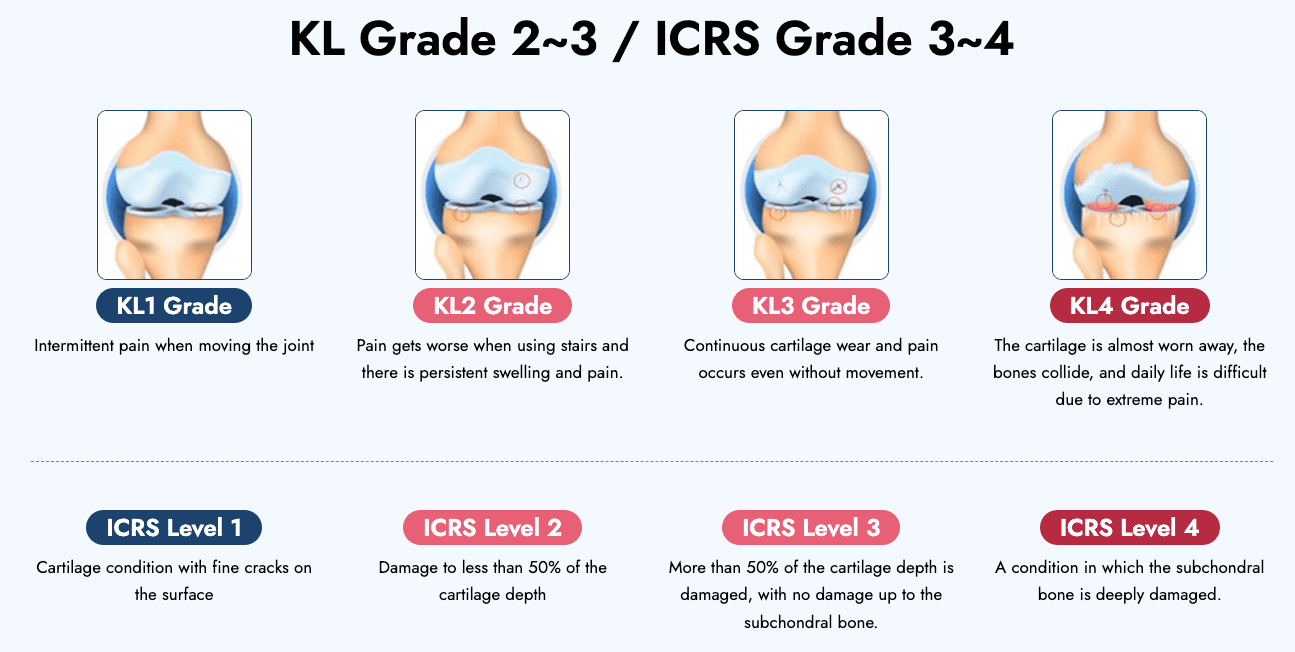
-
Patients with Chronic Joint Pain: Individuals suffering from arthritis or chronic joint pain may find relief as stem cells can help regenerate damaged cartilage and reduce inflammation.
-
People with Autoimmune Diseases: Conditions such as multiple sclerosis, lupus, and rheumatoid arthritis may see improvements since stem cell therapy can modulate the immune response and promote healing.
-
Stroke Victims: Patients who have experienced a stroke may benefit from improved recovery and reduced neurological damage through the regenerative properties of stem cells.
-
Individuals with Cardiovascular Diseases: Stem cell therapy can be a promising option for those with heart failure or other cardiovascular issues as it may enhance heart tissue repair and function.
-
Patients with Neurodegenerative Disorders: Individuals with conditions like Parkinson’s or Alzheimer’s disease may experience slowed progression or symptomatic relief due to the therapeutic potential of stem cells in repairing and regenerating neural tissue.
-
Those with Orthopedic Injuries: Athletes and others with tendon, ligament, or muscle injuries could see faster recovery times and improved healing with the help of autologous stem cells.
-
People Undergoing Cancer Treatment: Stem cells can aid in recovery and the rebuilding of the immune system for patients undergoing chemotherapy or radiation therapy.
-
Diabetics: Patients with type 1 diabetes might benefit from the regeneration of insulin-producing cells, potentially improving glucose regulation.
-
Patients with Skin Conditions or Chronic Wounds: Individuals dealing with chronic wounds or conditions such as psoriasis might see improved healing and skin regeneration.
-
People Seeking Anti-Aging Solutions: As stem cells have regenerative capacities, they can be used in therapies aimed at reducing signs of aging or enhancing overall vitality and tissue health.
Autologous Stem Cell Therapy Aftercare and Recovery
After undergoing autologous stem cell therapy in Korea, patients embark on a journey of recovery and healing, guided by personalized aftercare plans. The recovery process is crucial for maximizing the therapy's benefits and ensuring long-term success. Here’s an overview of what patients might expect during the aftercare phase:
Immediate Post-Treatment Care
Post-procedure, patients are typically monitored in a clinical setting for a few hours to ensure they are stable and comfortable. Mild side effects such as swelling, bruising, or soreness near the injection site may occur. These symptoms usually subside within a few days. Clinicians may recommend over-the-counter pain relief if necessary, though many patients report minimal discomfort.
Activity and Rest
Patients are often advised to take it easy for the first couple of days following the treatment. While light activities are generally permissible, strenuous exercises or activities that put stress on the treated area should be avoided for a week or more, depending on the clinician’s specific recommendations. Rest is a critical component, allowing the body to adapt and integrate the newly introduced stem cells efficiently.
Diet and Hydration
Maintaining proper nutrition and hydration is essential during recovery. A well-balanced diet rich in antioxidants, vitamins, and minerals can support healing processes. Patients should stay well-hydrated, as fluids play a vital role in cellular functions and tissue repair.
Follow-Up Appointments
Scheduled follow-up appointments with healthcare providers are an integral part of the aftercare process. These visits allow clinicians to monitor the patient’s progress, assess the therapy’s effectiveness, and address any concerns or complications. Adjustments to the recovery plan may be made based on these evaluations.
Signs to Monitor
It’s important for patients to be vigilant for any unusual symptoms such as increased pain, redness, or signs of infection around the injection site. Promptly reporting these to healthcare providers ensures any potential issues can be addressed swiftly.
Gradual Return to Routine
Patients can gradually return to their regular activities as they feel comfortable and as advised by their medical team. This staged approach helps prevent stress on the treated areas and supports optimal recovery and functionality.
Lifestyle Considerations
Incorporating lifestyle adjustments, such as stress management, adequate sleep, and avoiding smoking, can enhance the overall recovery process. These practices not only aid in recovery but can also contribute to sustainable health improvements.
In summary, aftercare and recovery from autologous stem cell therapy involve a combination of rest, monitoring, and lifestyle adjustments. By adhering to their personalized care plan, patients can facilitate a smoother recovery and achieve the desired outcomes from their treatment.
Cost of Autologous Stem Cell Therapy in Korea
Autologous stem cell therapy, which involves harvesting a patient’s own stem cells and reinjecting them to promote healing, is gaining popularity globally. Korea, in particular, has emerged as a notable destination for this cutting-edge treatment, largely due to its competitive pricing and advanced medical technology.
In Korea, the cost of autologous stem cell therapy can vary based on several factors, including the specific medical institution, the complexity of the treatment, and any additional care required. On average, patients in Korea might expect to pay between N/A and N/A USD for this therapy. This price range often includes not just the procedure itself but also associated medical expenses such as consultations, follow-ups, and necessary pre-operative evaluations.
When comparing this to the costs in the United States, the disparity becomes quite significant. In the U.S., the cost for similar procedures can range much higher, typically from $10,000 to $50,000 or more, depending on the specifics of the treatment plan and the healthcare provider. The higher costs in the U.S. can be attributed to several factors, including higher operational costs for medical facilities, more stringent regulatory environments, and a generally higher cost of healthcare services.
Traveling to Korea for autologous stem cell therapy not only offers a more affordable option but also provides access to highly regarded healthcare facilities and practitioners. Korea is known for its advanced biomedical technology and highly trained medical staff, which assures patients of high-quality care comparable to international standards. Additionally, many Korean medical institutions are accustomed to serving international patients, offering services and support tailored to non-local clientele, which can make the medical travel experience smoother and more comfortable.
For many patients, the cost savings coupled with the assurance of top-tier medical treatment and the opportunity to recover in a country known for its healthcare excellence make Korea an attractive destination for autologous stem cell therapy. These factors, combined with the country’s renowned hospitality and the potential for experiencing a rich cultural heritage, further strengthen Korea’s appeal as a premier location for medical tourism.
Alternatives to Autologous Stem Cell Therapy
In recent years, the field of regenerative medicine has rapidly advanced, offering multiple avenues for patients seeking innovative treatments. For those exploring options beyond Autologous Stem Cell Therapy, several viable alternatives are available. These alternatives each have their unique mechanisms, benefits, and applications.
1. Allogeneic Stem Cell Therapy
Allogeneic Stem Cell Therapy involves the use of stem cells derived from a donor. Unlike autologous methods where a patient's own cells are used, allogeneic therapy often employs hematopoietic stem cells from a suitable donor match. This approach is particularly common in the treatment of blood-related disorders such as leukemia and lymphoma.
The advantage of allogeneic therapy lies in the potential for a graft-versus-tumor effect, where donor immune cells may attack residual cancer cells in the patient. However, the primary challenge is the risk of graft-versus-host disease (GVHD), where the donor immune cells may also attack the host's body. Advances in HLA matching and immune-suppressive therapies are continually improving the safety and efficacy of this approach.
2. Platelet-Rich Plasma (PRP) Therapy
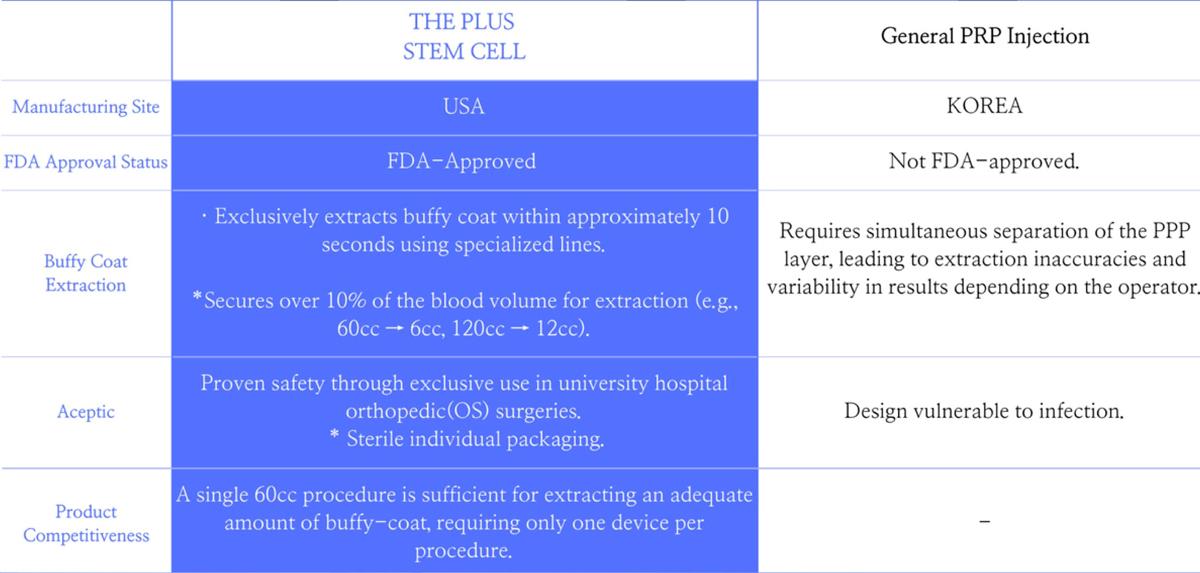
Platelet-Rich Plasma Therapy is a regenerative technique that uses components of the patient's blood to promote healing in injured tissues. A small sample of the patient's blood is processed to concentrate the platelets, which are then injected into the damaged area. PRP is rich in growth factors that can enhance the body's natural healing process, making it a popular treatment for musculoskeletal injuries and conditions like osteoarthritis.
PRP therapy is minimally invasive and has a low risk of complications since it uses the patient's own biological materials. It has been widely adopted in sports medicine and orthopedics for its ability to accelerate recovery and reduce pain, although its effectiveness can vary based on the condition being treated and the technique used.
3. Gene Therapy
Gene Therapy is a cutting-edge approach that involves the modification of a patient's genes to treat or prevent disease. This technique can be applied to correct defective genes responsible for developing disease or to target harmful cells, such as those found in cancer. Gene therapy typically uses a vector, often a virus, to deliver the therapeutic gene into the patient's cells.
The promise of gene therapy lies in its potential to provide long-lasting or even permanent effects after a single treatment. Although still in the experimental stages for many conditions, it has shown success in treating genetic disorders like congenital blindness and certain blood diseases. Gene therapy continues to be an area of intense research, aiming to overcome technical challenges and improve delivery and targeting mechanisms to ensure safety and efficacy.
Each of these alternatives presents a unique set of opportunities and challenges, and their suitability can vary significantly depending on the individual's specific medical condition and overall health profile.
Conclusion
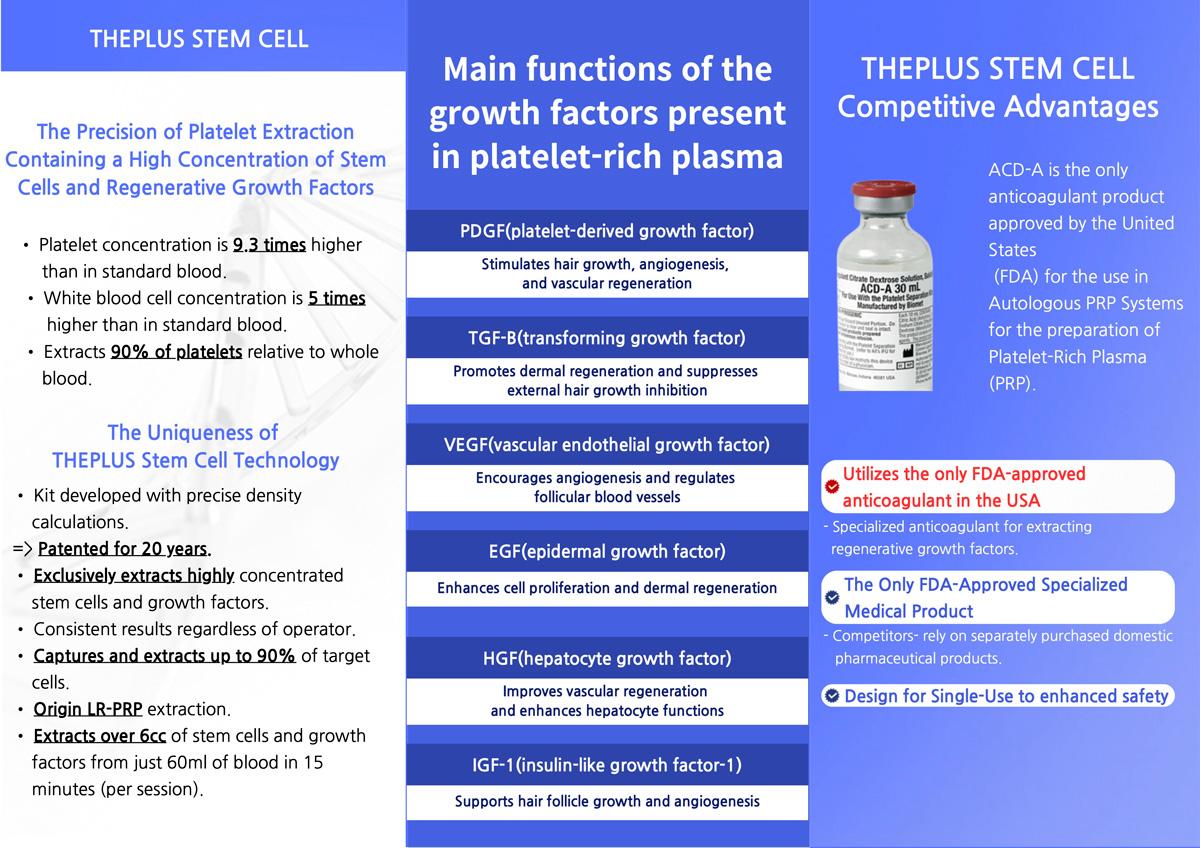
In conclusion, Autologous Stem Cell Therapy in Korea presents a promising frontier for regenerative medicine, capitalizing on the body's own resources to promote healing and rejuvenation. With its comprehensive procedure that aligns with rigorous medical protocols, this therapy is a viable option for individuals seeking innovative treatments for various ailments. Korea, known for its advanced medical infrastructure and expertise, offers significant benefits in terms of high-quality care and competitive costs. However, potential patients should consider the need for appropriate aftercare and recovery, and evaluate personal suitability with medical professionals. For those exploring other avenues, several alternatives exist, emphasizing the importance of informed decision-making in pursuing optimal health outcomes.
